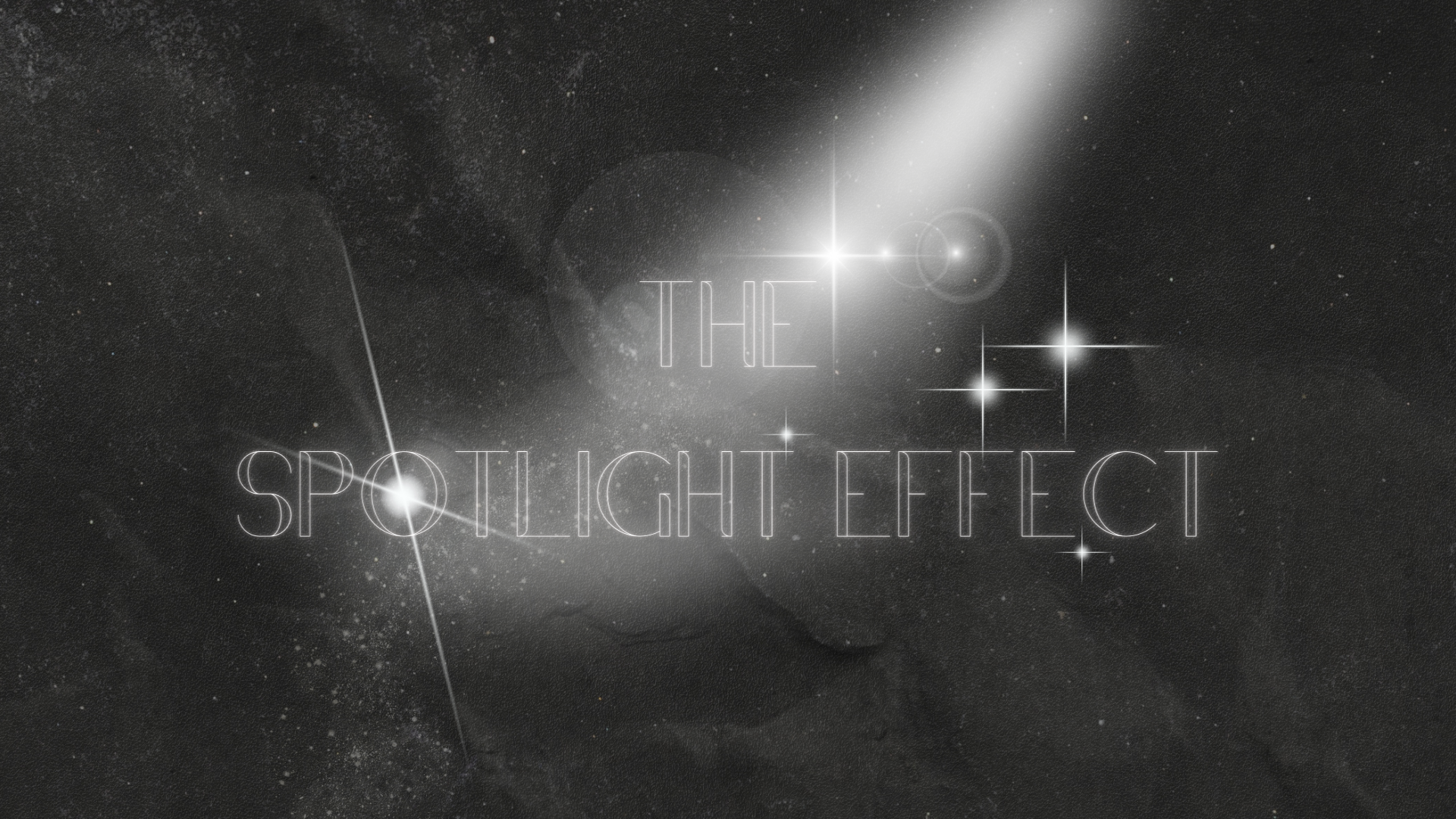
Bringing the spotlight effect into focus
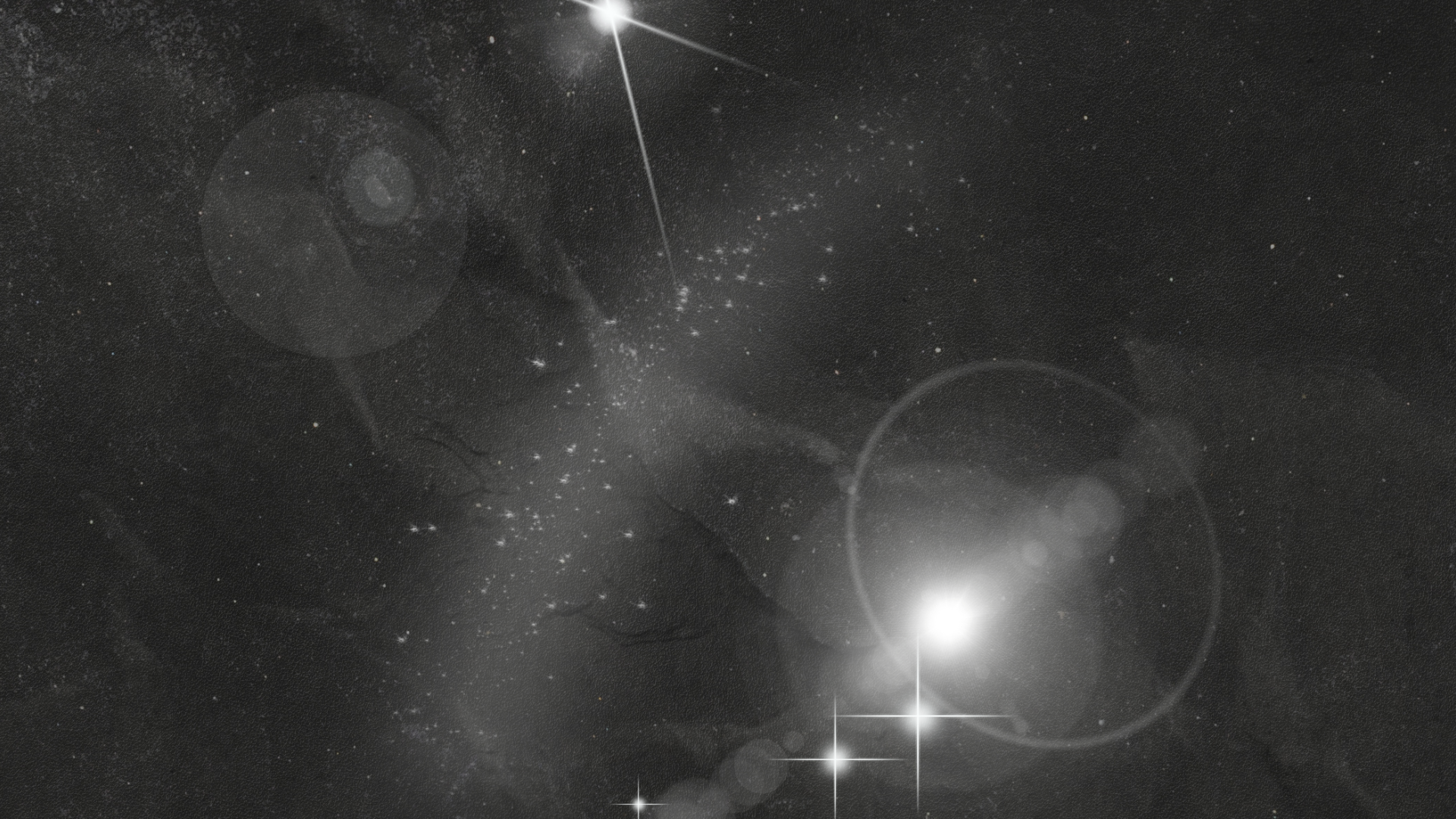
Walking down the halls of West High, it’s easy to feel self-conscious. Whether it’s a bad hair day or a stained shirt, everyone has things they can feel insecure about. But is anyone actually noticing them?
According to Cabrini University, the spotlight effect is the psychological phenomenon that leads people to think there is more attention paid to them than there actually is. This is common, especially among teens.
It can manifest in anxiety over too many stares or an embarrassing moment, even though no one was looking or would remember anything specific.

Tom Gilovich conducted the effect’s most famous study in 2000. Using embarrassing t-shirts, Gilovich was able to find the discrepancy between the predicted and actual percent of people who noticed the shirts. Those who wore the shirts overestimated by 200%, assuming 50% noticed when in reality only 25% did. A test group of onlookers who weren’t wearing the shirt accurately guessed 25% would notice.
These statistics demonstrate how everyone assumes more people notice them than is accurate. An embarrassing t-shirt or moment isn’t as big of a deal as they think.
The effect isn’t always about embarrassing or negative moments, however. It can also apply to positive moments, in what can be called main character syndrome. Although it’s mainly a slang term, main character syndrome has grown to describe how people see themselves as the main character and everyone else as a sidekick.
This extreme side of the spotlight-effect-spectrum is still correlated with anxiety and insecurity but also has aspects of narcissism. The lack of empathy for others and prioritization of the self are often associated with narcissism, albeit just a few traits. Main character syndrome is still associated with or covers up vulnerabilities.
An article by Psychology Today brings up how psychological biases like the Underestimating how similar people are, especially in terms of sharing good traits.false-uniqueness effect and the Overestimating how much people understand each other’s mental statesillusion of transparency are what lead to the perceived notions of standing out: an egocentric bias. As demonstrated by the insecurities of the spotlight effect and the self-absorption of the main character syndrome, the egocentric bias can affect many aspects of mental and emotional health.

In AP Psychology, West High students can learn about the spotlight effect. Social studies teacher Camille Crossett uses examples such as carrying a lunchbox or an umbrella to demonstrate how people stress over mundane things that aren’t remembered or noticed by their peers.
This knowledge alone can help teenagers cope and realize that their insecurities aren’t exposed for the world to see. Crossett said, “It’s hard to have that perspective when you’re 16 and you’re trying to imagine what it’s like to be outside of high school but…knowing that this phenomenon exists can maybe help you realize that [what you’re believing] is probably not true. But it can still be hard, regardless of whether you know that or not, to ignore it.”
Acknowledging how individual perspective differs from reality is exactly how teenagers can cope. Through both physical and mental growth, teenagers can work through their insecurities and develop their self-confidence.
-
 FeatureOn air, in print, in person
FeatureOn air, in print, in person -
 FeatureThe City of Literature
FeatureThe City of Literature -
 FeatureQ & A with Walk It Out program director
FeatureQ & A with Walk It Out program director -
 FeatureBreaking the cycle
FeatureBreaking the cycle -
 FeatureBeyond the trails
FeatureBeyond the trails -
 FeatureStuck in the cycle
FeatureStuck in the cycle -
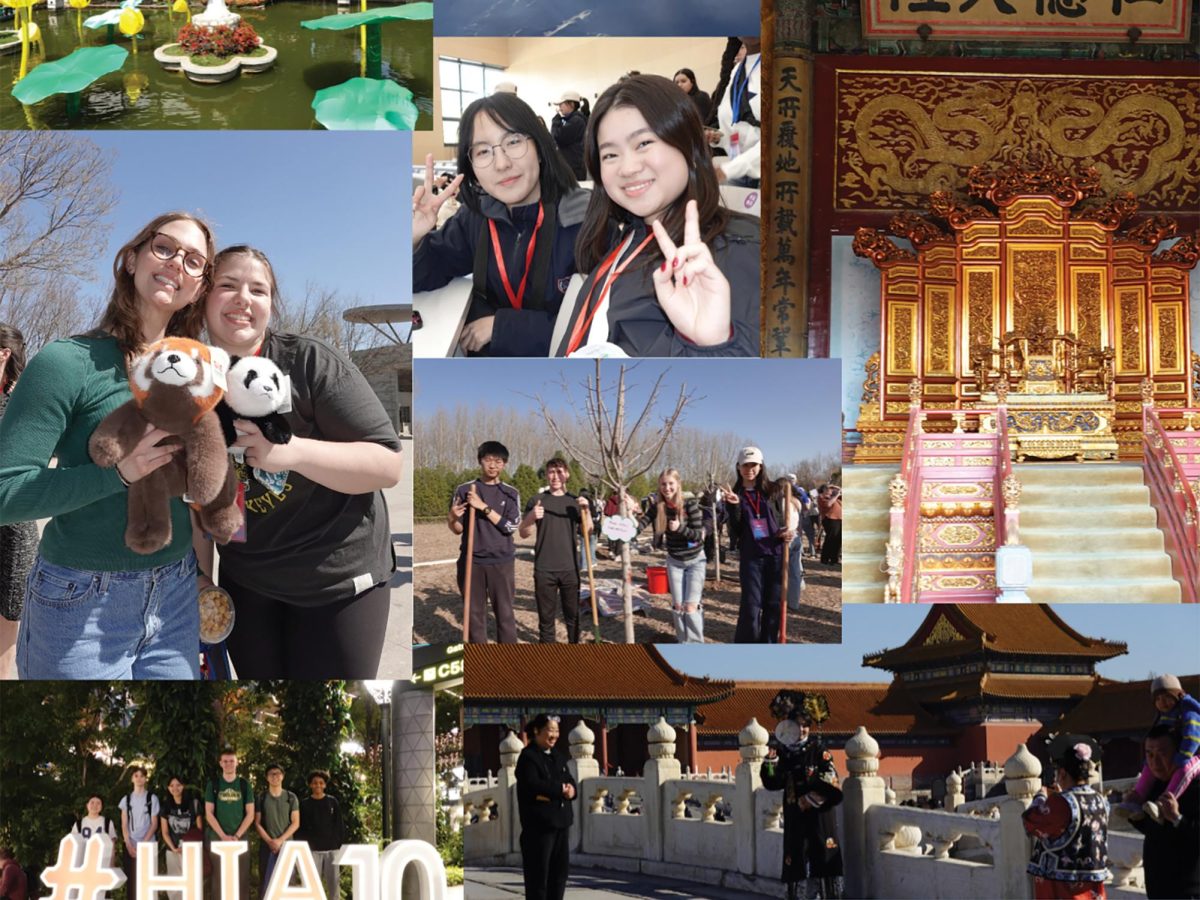 FeatureWest students return from China trip
FeatureWest students return from China trip -
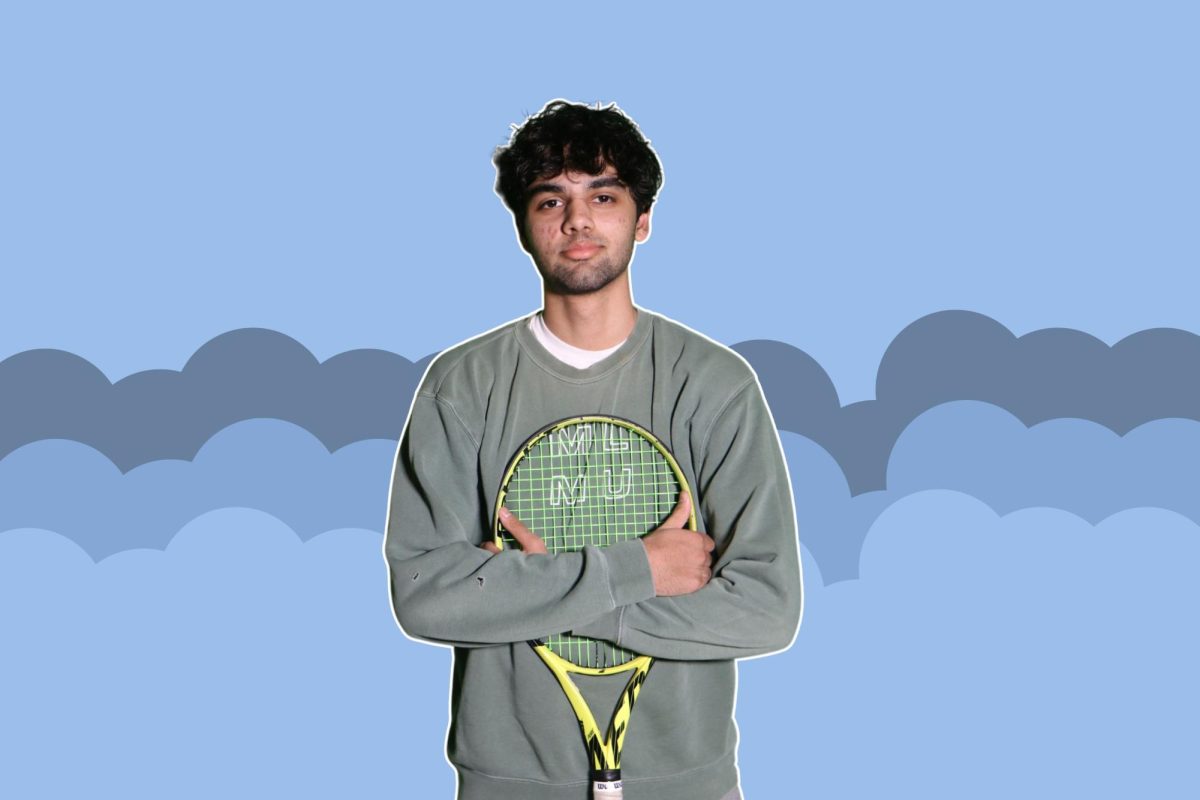 Feature1 in 1600
Feature1 in 1600 -
 FeatureRising stars
FeatureRising stars -
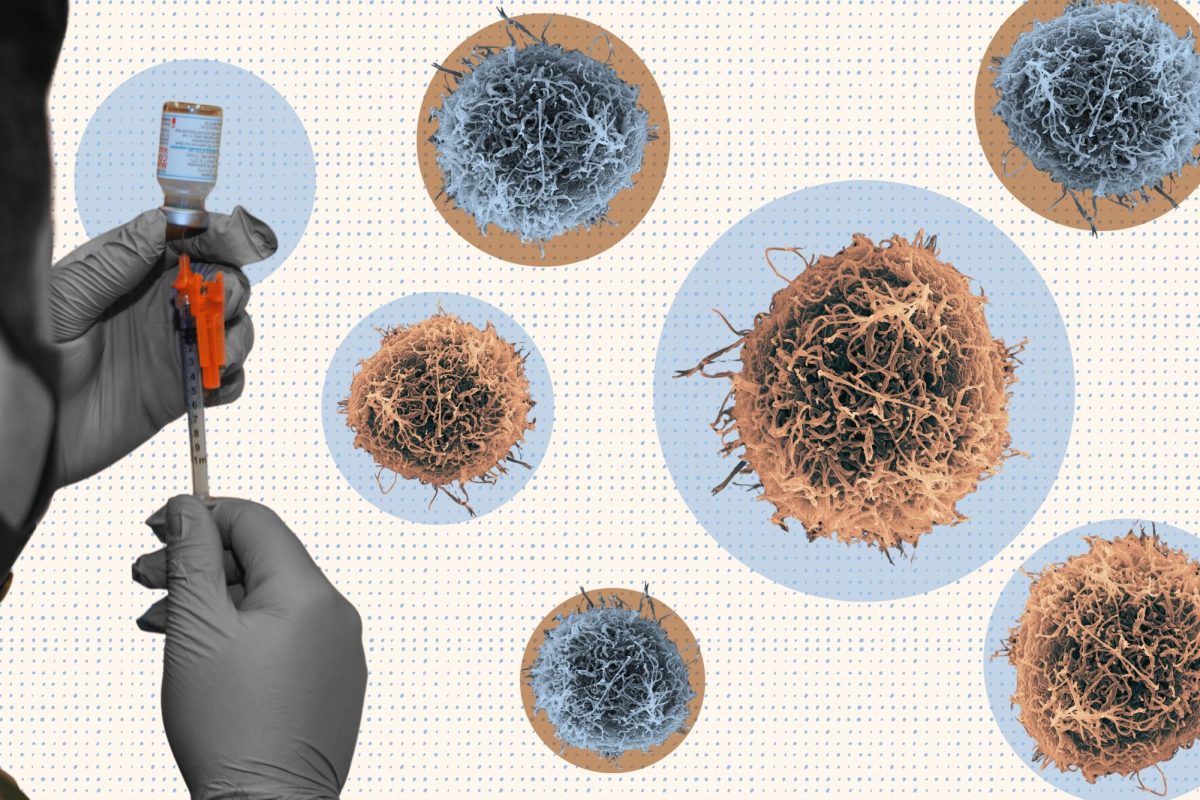 FeatureThe vac-scene
FeatureThe vac-scene -
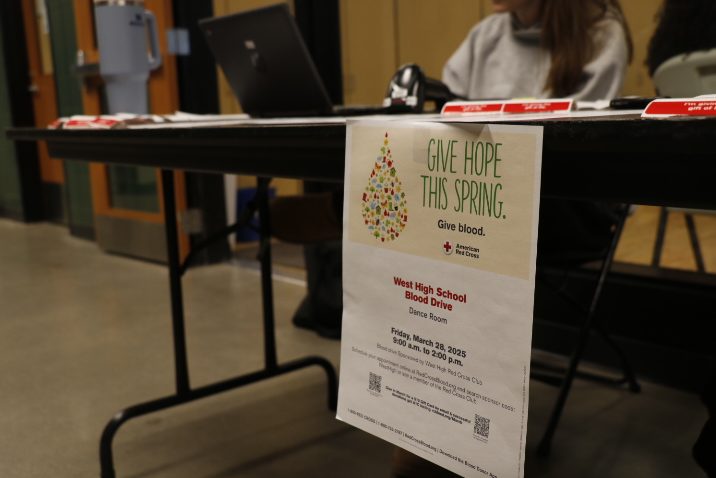 Health & ScienceRed Cross Club’s fifth blood drive brings in 50 units
Health & ScienceRed Cross Club’s fifth blood drive brings in 50 units -
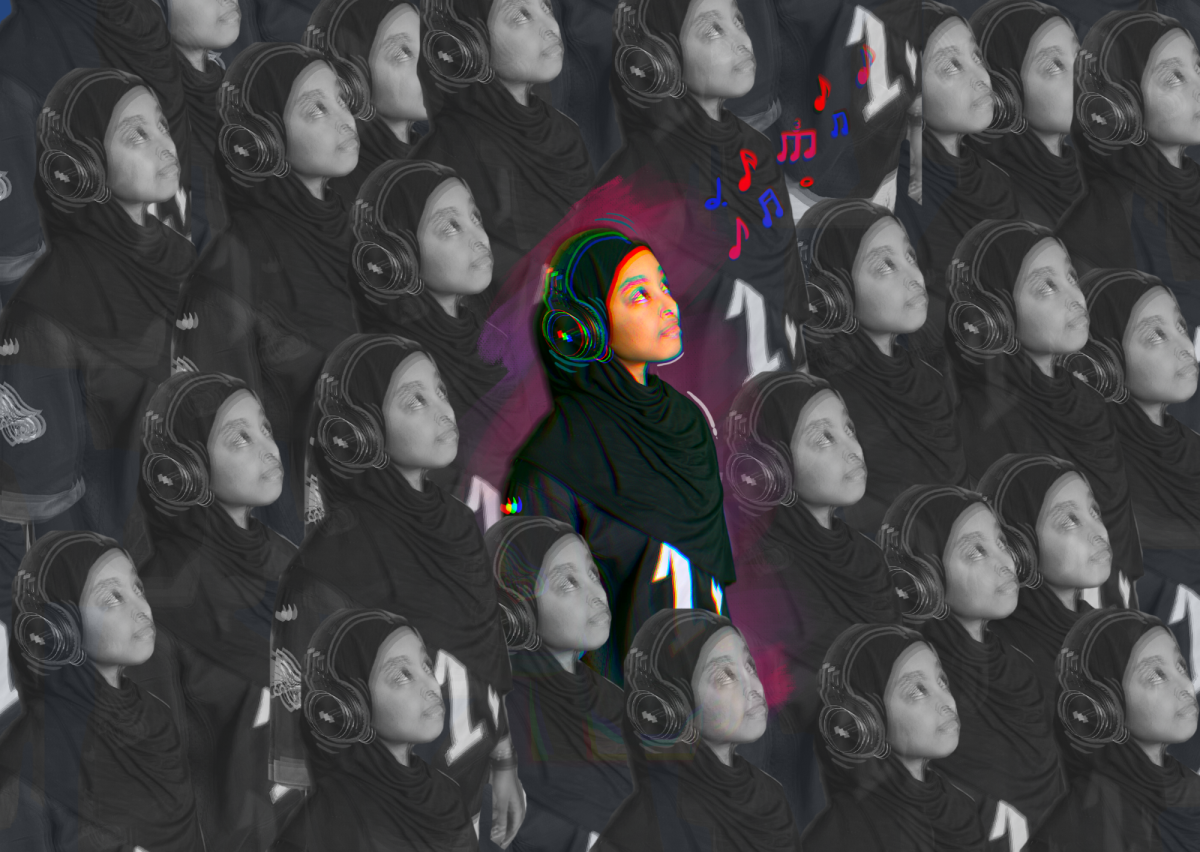 Health & ScienceMusic on the mind
Health & ScienceMusic on the mind -
 Health & ScienceWest High holds its first winter blood drive amidst a national blood shortage
Health & ScienceWest High holds its first winter blood drive amidst a national blood shortage -
 Health & ScienceFinding green in the gray area
Health & ScienceFinding green in the gray area -
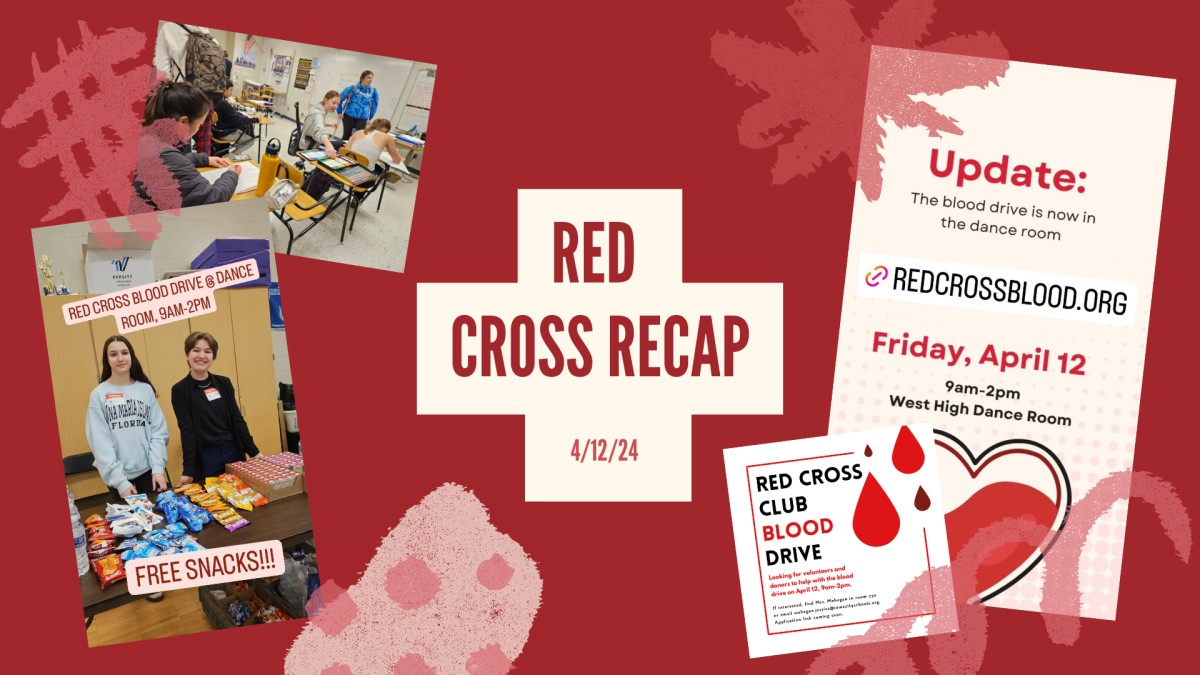 Health & ScienceRed Cross recap
Health & ScienceRed Cross recap -
 Health & SciencePowered up
Health & SciencePowered up -
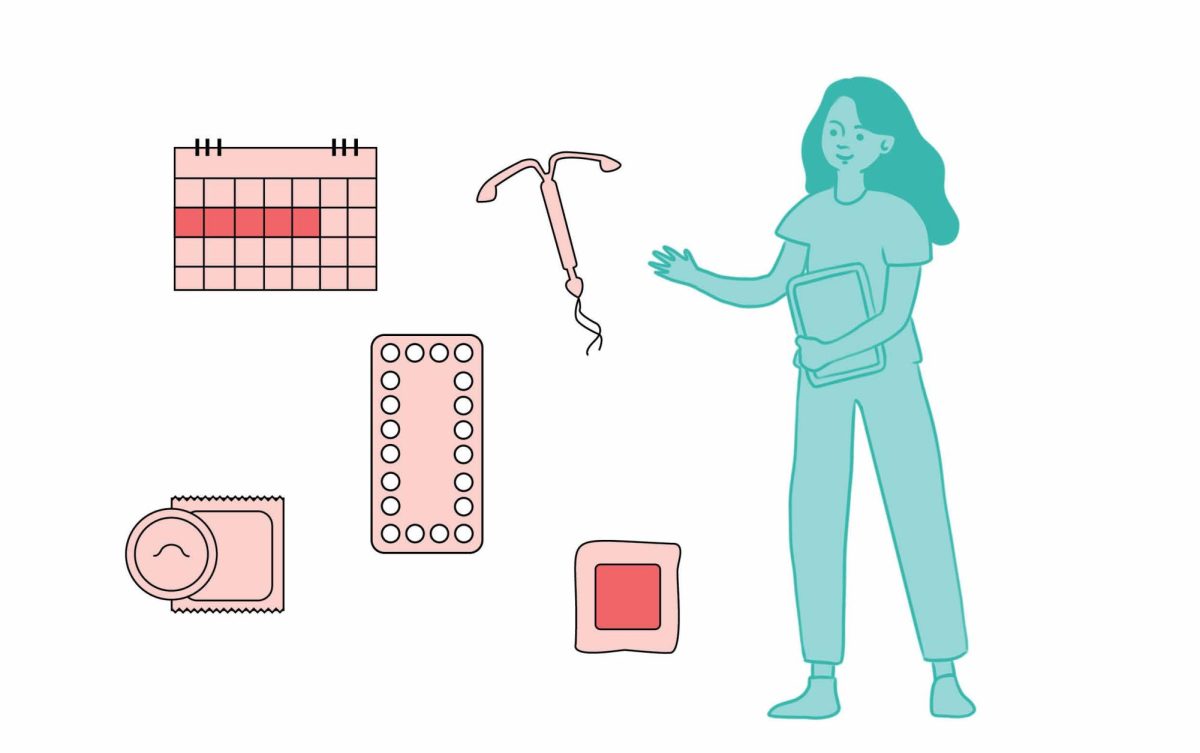 Health & ScienceContraceptives
Health & ScienceContraceptives -
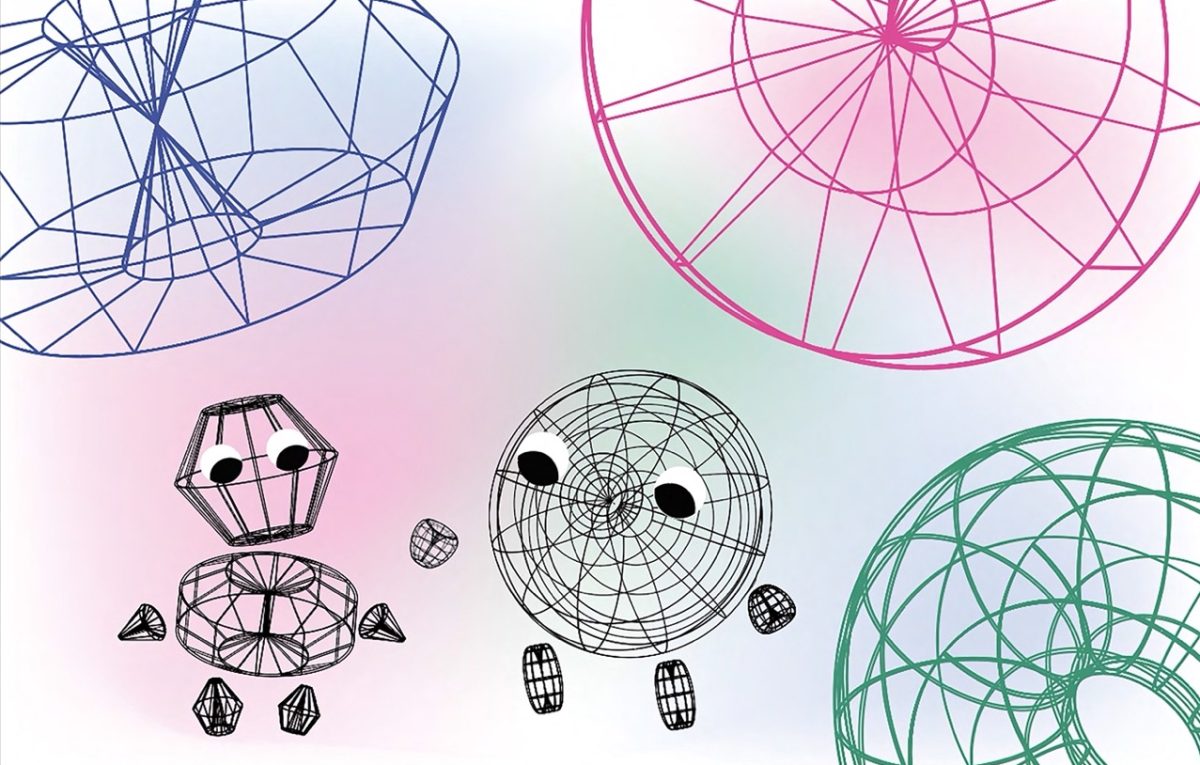 Health & Science1-2-3, eyes on me
Health & Science1-2-3, eyes on me -
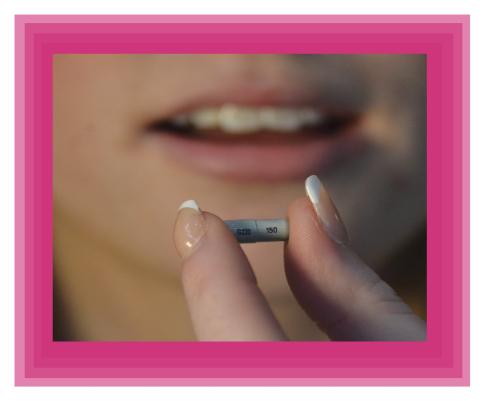 Health & ScienceMedicated
Health & ScienceMedicated -
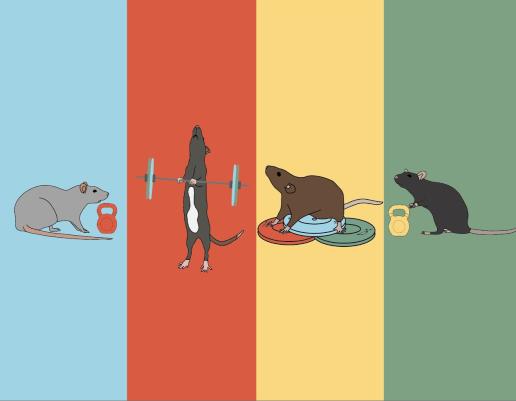 Health & ScienceGym Rats
Health & ScienceGym Rats -
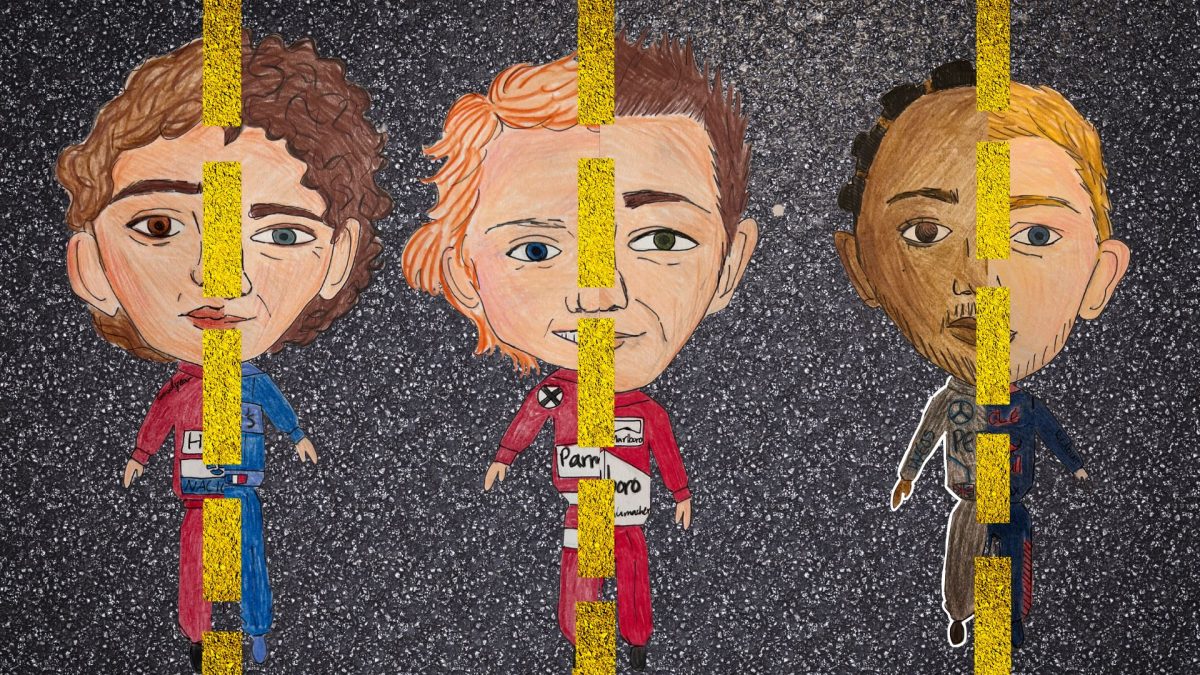 ShowcaseThe icons of Formula 1
ShowcaseThe icons of Formula 1 -
 Showcase2025 West High faculty superlatives
Showcase2025 West High faculty superlatives -
 ShowcaseWest High math team secures first place at national competition
ShowcaseWest High math team secures first place at national competition -
 ShowcaseSpring season ends for the West High Esports team
ShowcaseSpring season ends for the West High Esports team -
 ShowcaseSenior night ends in strong victory for Trojan soccer
ShowcaseSenior night ends in strong victory for Trojan soccer -
 ShowcaseBPA national conference 2025 recap
ShowcaseBPA national conference 2025 recap -
 ShowcaseSamira Ahmed visits West for biennial author visit
ShowcaseSamira Ahmed visits West for biennial author visit -
 ShowcaseWest High girls soccer defeats Western Dubuque on senior night
ShowcaseWest High girls soccer defeats Western Dubuque on senior night -
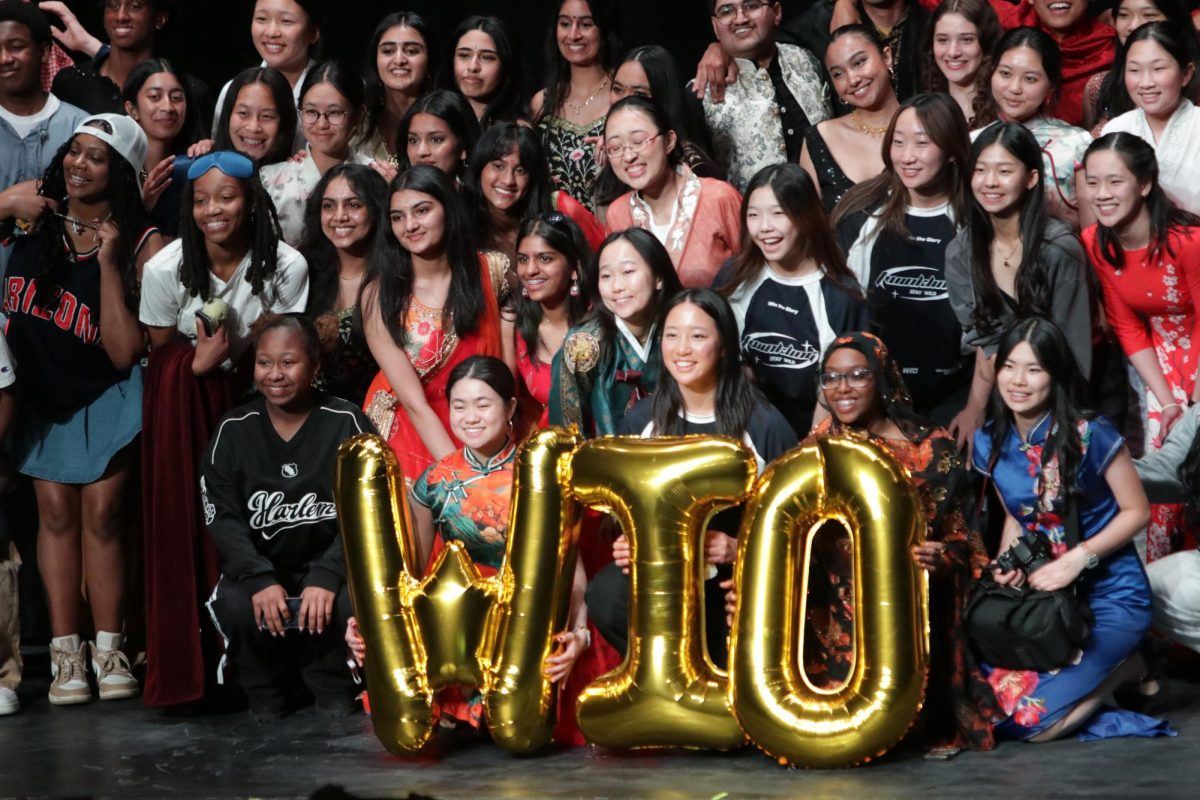 ShowcaseStudents shine at annual Walk It Out show
ShowcaseStudents shine at annual Walk It Out show -
 ShowcaseTrojan takeover: West High soccer sweeps City High
ShowcaseTrojan takeover: West High soccer sweeps City High


Your donation will support the student journalists of West High School. Your contribution will allow us to purchase Scholarship Yearbooks, newsroom equipment and cover our annual website hosting costs.



